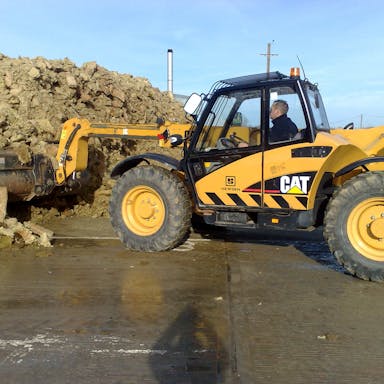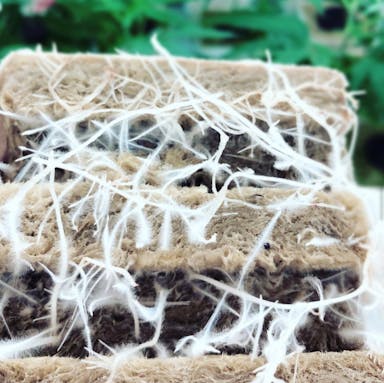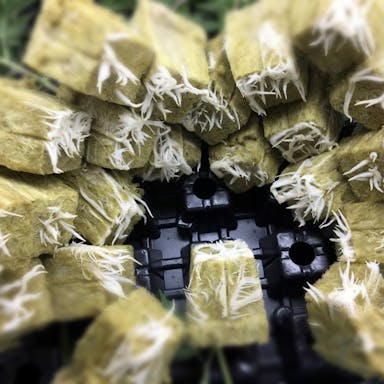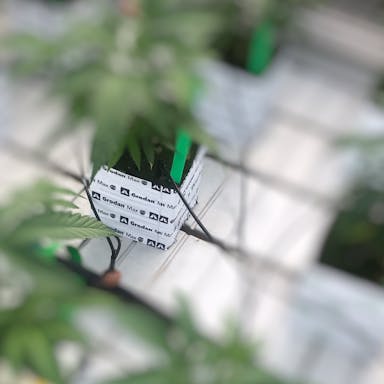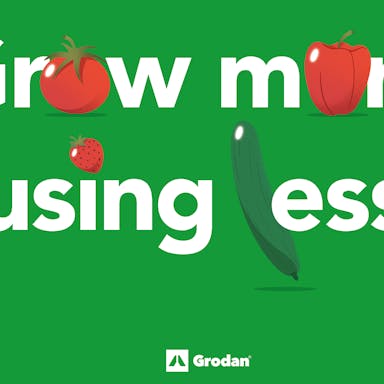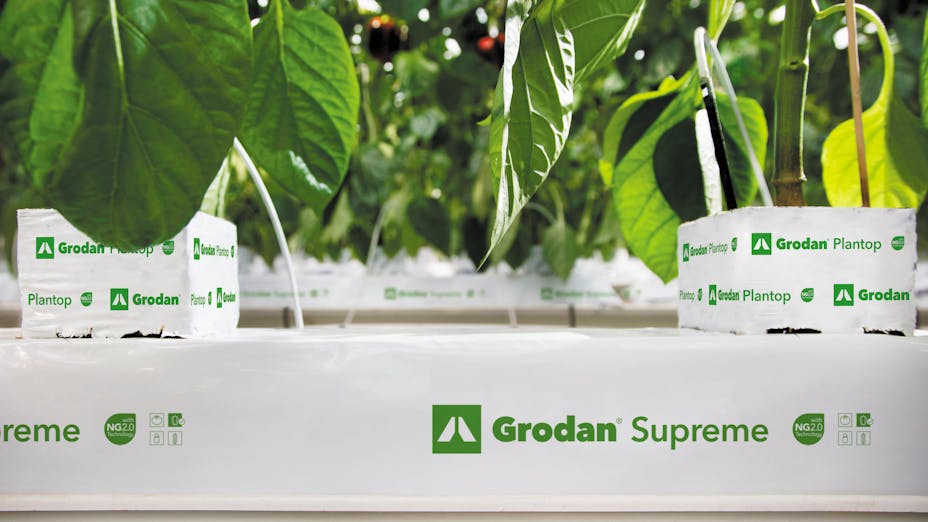1. What kind of plastics does Grodan use to package the substrate products?
All our slabs and blocks are currently packaged in a Low Density Polyethylene (LDPE) film. This product is made from oil. It is one of the most widely used films in the market. LDPE is water resistant and it insulates well.
2. How sustainable is your packaging film? Can you also recycle it, for example?
LDPE film itself is not biodegradable and can also not be composted. However, the material is highly recyclable. That is why Grodan offers growers a professional recycling service to remove the foil from the substrate at the end of the growing season, separate it from the stone wool and plant residues, and recycle it.
3. Are there any alternatives to LPDE packaging film?
Yes, because there is a lot of attention in the market for further sustainable cultivation. For example, growing media with biodegradable packaging have come onto the market. In this case, biodegradable refers to the raw material used, oil, that has been replaced by, for example, sugars or starch. There are currently two types of bio-film on the market. The difference between these films is their method of composting:
- Compostable bio-foil: this means the foil is made of organic material and is compostable under natural influences such as water or heat. The composting process already starts during cultivation. The disadvantage of this foil is that it breaks down in moisture and is therefore vulnerable in the greenhouse.
- Non-compostable bio-foil: this is not compostable naturally on land and cannot be recycled with organic waste. For the recycling process, this material should always be separated from substrate and green waste, comparable to what is currently done with LDPE film. This means the recycler must still set up a separate facility for this.
4. Is bio-foil better for the environment? What does Grodan think about this?
No. The term bio-foil does not automatically mean that this foil is also more sustainable. The durability of foil material with compostable and non-compostable bio-foil also depends on the way in which the facilities at the recycling chain are being set up. This is in practice is not yet commonplace within the horticultural sector.
This is why biodegradable film is not always as sustainable as it may seem at first sight. As a grower, ask yourself the following questions:
- What material do you use?
- How is this material compostable or not?
- Do you know how the material is being composted by the recycling company?
- Can you make the right arrangements yourself so your biodegradable films can actually be recycled?
5. Does Grodan also apply bio-foil in the substrate products?
No, we do not do this consciously. Based on the current range of packaging materials and the design of the recycling chain in the market, we believe the current way of packaging our substrate products is a tthis moment the most sustainable option. Because sustainability is our top priority, we continue to invest in research for more sustainable alternatives, including our packaging material.
6. Does Grodan guarantee the intake of the plastic packaging, if recyclers only want to take in biodegradable or biodegradable plastic in the future?
Yes, we guarantee this because we think it is important that we can offer growers a good solution for their used Grodan stone wool products. We have set up our professional recycling service for this, which puts us in close contact with recyclers worldwide.
Three more fun "recycling facts":
- The stone wool is purified and processed into a raw material for the production of, for example, bricks, by means of an energy-poor process.
- In the ROCKWOOL factories, the granulated stone wool is reused for the production of new stone wool.
- Grodan works with growers from approximately 70 countries. The recycling program is being rolled out in more and more countries. In the Netherlands, the recycle percentage is almost 100%.
For more information, go to our recycling service.
For other questions about our films and / or recycling service, please contact our specialists.
